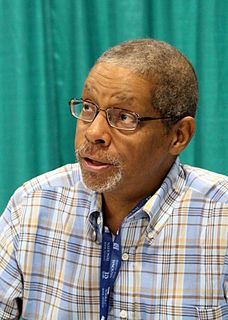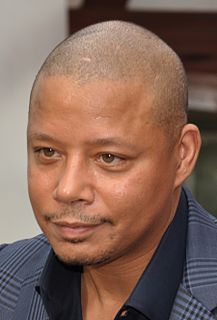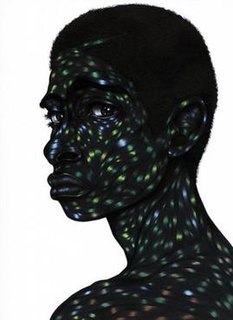A Quote by Cheo Hodari Coker
If you're a black person in America, it's really hard to avoid being black. And what I mean is that the reality of your cultural history, regardless of whether or not you talk about it, it's there.
Related Quotes
Black History is enjoying the life of our ancestors who paved the way for every African-American. No matter what color you are, the history of Blacks affected everyone; that's why we should cherish and respect Black history. Black history changed America and is continuing to change and shape our country. Black history is about everyone coming together to better themselves and America. Black history is being comfortable in your own skin no matter what color you are. Black history makes me proud of where I came from and where I am going in life.
For black America needs a politics whose first mission isn't the reinforcement of the idea of black America; and a discourse of race that isn't centrally concerned with preserving the idea of race and racial unanimity. We need something we don't yet have: a way of speaking about black poverty that doesn't falsify the reality of black advancement; a way of speaking about black advancement that doesn't distort the enduring realities of black poverty.
I belong to a bowling team with black and Latino coworkers. And when we get together and we talk about politics - I'm almost quoting him - he said, we don't talk about Black Lives Matters. We talk about what matters to our families. We talk about jobs, and we talk about the fate of the country. That is America, and you can reach those people.
I felt like it was a courageous show [Black-ish] from the beginning. We are a black family - we're not a family that happens to be black. But the show is not even about us being black. The show is about us being a family. That is groundbreaking - on TV, the black characters either happen to be black or they're the "black character," where everything they say is about being black. I think that's the genius.
Certainly I feel like I'm the tip of the arrow at times because certainly the national media wants to talk about the fact that I'm a black Republican and some people think of that as zany that a black person would be a conservative but to me what is zany is any person black, white, red, brown or yellow not being a conservative.
When I have my Afro and walk down the street, there's no doubt that I'm black. With this [straightened] hair, if I talk about being black on air, viewers write and say, "You're black?!" I feel [straightening your hair] is giving up a sense of your identity. Let's be honest: It's an effort to look Anglo-Saxon.
The essential relationship across American history between black people and white people is one of exploitation and one of plunder. This is not, you know, necessarily about, you know, whether you're a good person or not or whether you see black people, you know, on the street, and you're willing to shake their hands and be polite.
































